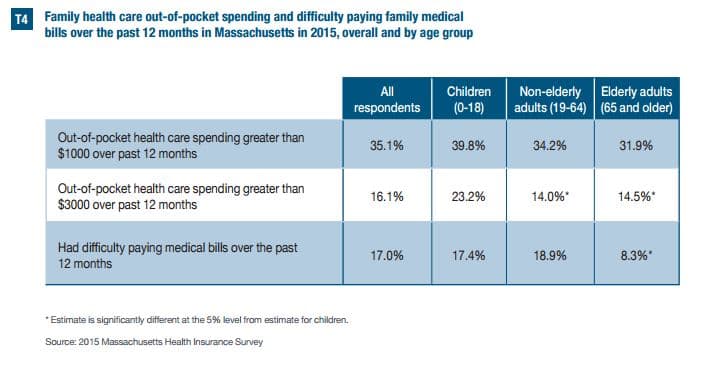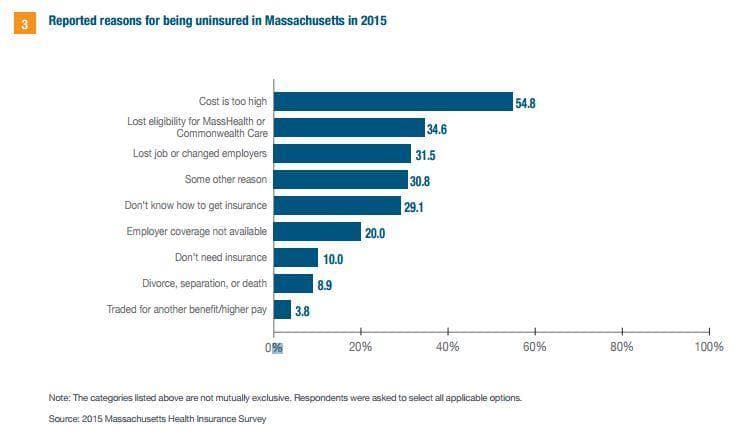Advertisement
1 In 6 Mass. Residents Put Off Health Care This Year To Avoid Costs, Survey Finds
A new survey of Massachusetts residents finds that about one in six did not get health care they said they needed in 2015 because of the cost.
The survey from the state's Center for Health Information and Analysis (CHIA) highlights a trend showing more people have high-deductible plans in which insurance covers less care and patients pay more out of pocket.
But Aron Boros, the center's director, said putting off care is just one way patients are trying to reduce their health care spending.
"Almost a third of the respondents say they and their family were trying to stay healthier either by quitting smoking or changing their diet, and I think that really shows that these costs are really impacting people's behavior," Boros said.

The findings — which collected data from 5,002 Massachusetts residents -- also revealed that 17 percent of people reported having problems paying their medical bill over the past 12 months, with 16.1 percent spending $3,000 or more out-of-pocket for health care for their families to cover deductibles, copayments and procedures not covered by insurance.
The uninsurance rate in Massachusetts was 3.6 percent, a value significantly lower than the 9.2 percent national uninsurance rate. Massachusetts has long had a rate below the nation's. However, coverage in the state is tenuous for many residents, as 14 percent of respondents in Massachusetts reported being uninsured at some point in 2015.
The problems affording health coverage and accessing care were particularly acute among certain populations, including Hispanics. Boros said that despite the high rate of people reporting coverage, 8 percent experienced a gap in coverage at some point over the last year.
The uninsured were more likely to be low-income, single, male and Hispanic than the rest of population, and Hispanics were found specifically to have higher rates of emergency room visits and difficulty getting appointments.
"The policies that are in place to expand coverage exclude certain populations," Boros said, suggesting that the transiency of certain populations as well as "immigration rules for access to subsidies for public health programs" create particular barriers for the Hispanic population.
Boros said those who choose not to have health coverage represent a "relatively small part of the population."

Of those still uninsured, 55 percent cited the high cost of the health insurance as the main barrier, followed by lost eligibility for MassHealth and Connector Care (34.6 percent) and the loss of a job (31.5 percent) that disrupted their insurance. Twenty-nine percent of those uninsured said they didn't know how to obtain coverage.
Among the positive takeaways from the survey, officials pointed to the fact that 89 percent of respondents reported having a usual source of care and 89 percent said they had visited a general doctor or other non-physician practitioner in the past 12 months.
Visits to the emergency room, however, remain a somewhat common occurrence that can drive up the overall cost of care when patients choose to wait until they have an immediate and more expensive medical need rather than seeking out regular preventative care.
One-third of survey respondents said they had visited an emergency department in the past year, a slight uptick from 2014. Of those who visited an emergency room, 40 percent said they sought care for a non-emergency condition.
CHIA said that difficulty getting an appointment with a primary care provider may have been a contributing factor to the rate of ER visits, with one in five respondents reporting difficulty getting an appointment when needed, and one in seven being told that a doctor was not accepting new patients.
With reporting from WBUR's Martha Bebinger and Matt Murphy of the State House News Service